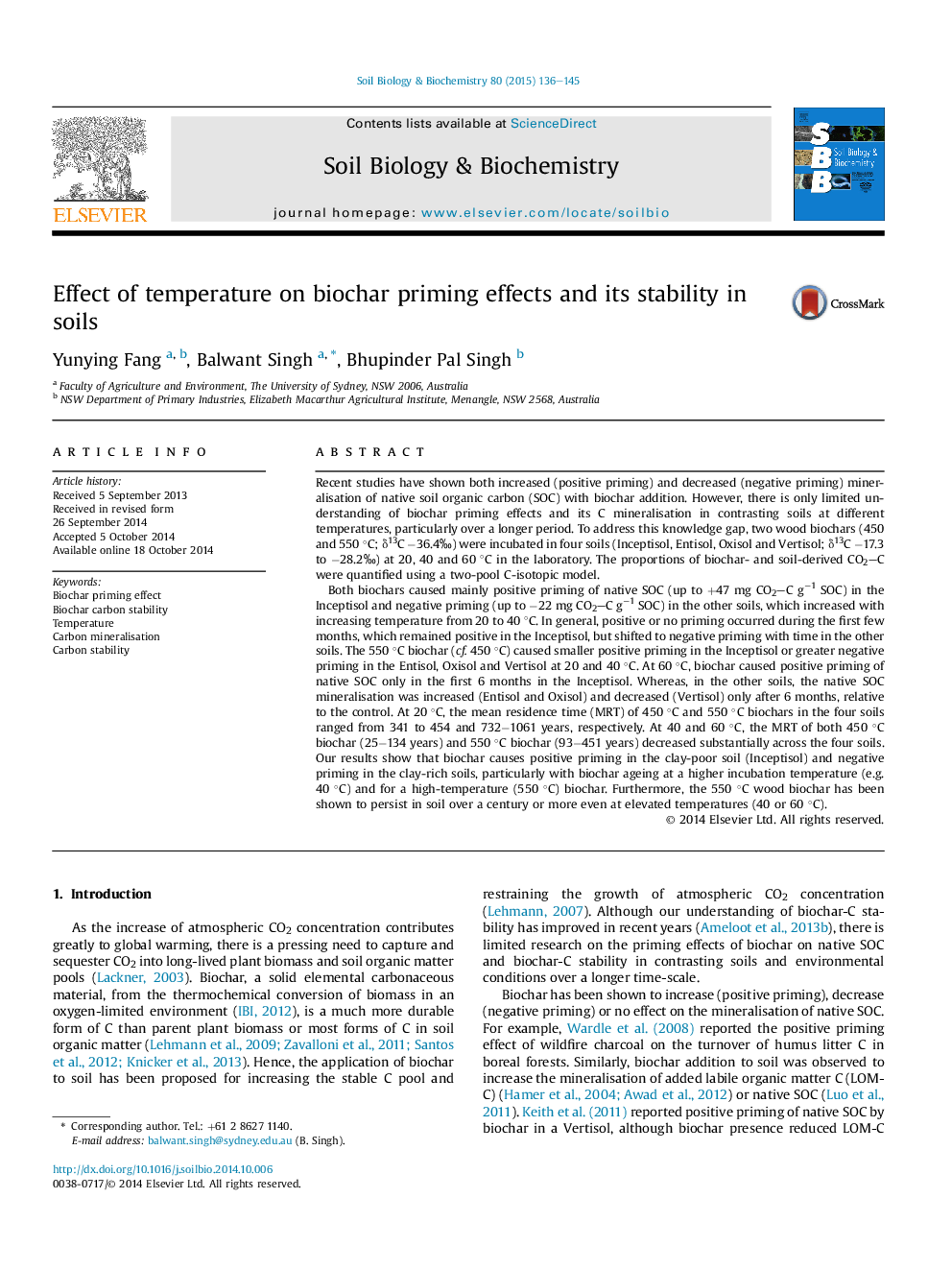| Article ID | Journal | Published Year | Pages | File Type |
|---|---|---|---|---|
| 8364394 | Soil Biology and Biochemistry | 2015 | 10 Pages |
Abstract
Both biochars caused mainly positive priming of native SOC (up to +47 mg CO2-C gâ1 SOC) in the Inceptisol and negative priming (up to â22 mg CO2-C gâ1 SOC) in the other soils, which increased with increasing temperature from 20 to 40 °C. In general, positive or no priming occurred during the first few months, which remained positive in the Inceptisol, but shifted to negative priming with time in the other soils. The 550 °C biochar (cf. 450 °C) caused smaller positive priming in the Inceptisol or greater negative priming in the Entisol, Oxisol and Vertisol at 20 and 40 °C. At 60 °C, biochar caused positive priming of native SOC only in the first 6 months in the Inceptisol. Whereas, in the other soils, the native SOC mineralisation was increased (Entisol and Oxisol) and decreased (Vertisol) only after 6 months, relative to the control. At 20 °C, the mean residence time (MRT) of 450 °C and 550 °C biochars in the four soils ranged from 341 to 454 and 732â1061 years, respectively. At 40 and 60 °C, the MRT of both 450 °C biochar (25â134 years) and 550 °C biochar (93â451 years) decreased substantially across the four soils. Our results show that biochar causes positive priming in the clay-poor soil (Inceptisol) and negative priming in the clay-rich soils, particularly with biochar ageing at a higher incubation temperature (e.g. 40 °C) and for a high-temperature (550 °C) biochar. Furthermore, the 550 °C wood biochar has been shown to persist in soil over a century or more even at elevated temperatures (40 or 60 °C).
Related Topics
Life Sciences
Agricultural and Biological Sciences
Soil Science
Authors
Yunying Fang, Balwant Singh, Bhupinder Pal Singh,
